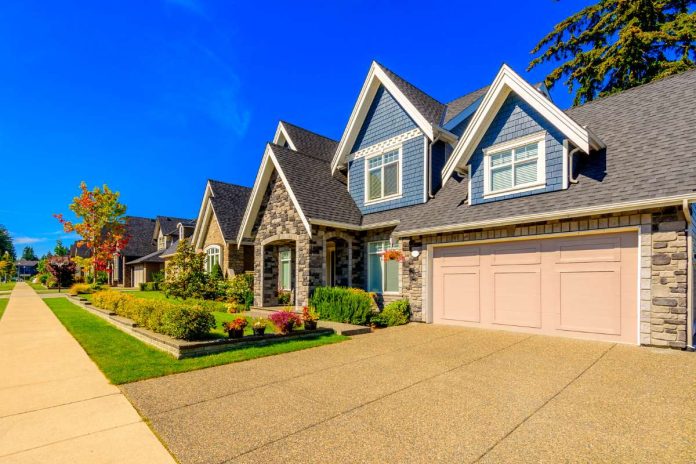Living in a housing society as a tenant comes with its own set of housing society rules and regulations. These rules are put in place to ensure a harmonious living environment for all residents. As a tenant, it is important to understand and follow this housing society rules to avoid any conflicts with the housing society management or fellow residents.
In this article, we provide a comprehensive guide to help under the housing society rules and regulations tenants understand their rights and responsibilities.
What Is A Housing Society?
Housing societies are a popular form of residential living that has been around for several decades. They are essentially self-contained communities that offer a range of services and amenities to their residents. These societies can be found in urban and suburban areas, and they come in different sizes and shapes.
Let’s delve into the world of housing societies, examining the benefits, management, and challenges that come with living in one.
Benefits of Living in a Housing Society:
- Security: One of the most significant benefits of living in a housing society is the enhanced security it offers. Most societies have gated entrances, security cameras, and security personnel to ensure the safety of their residents.
- Amenities: Housing societies offer a range of amenities that make living more comfortable and convenient. These amenities may include parks, playgrounds, swimming pools, gyms, and community centers.
- Community: Housing societies foster a sense of community among their residents. This can be particularly beneficial for those who are new to an area or those who want to connect with like-minded individuals.
- Maintenance: Housing societies typically have maintenance staff who are responsible for ensuring that the common areas, such as parks and playgrounds, are kept clean and well-maintained.
Different Types of Housing Societies Rules and Regulations
When it comes to housing societies, there are various types such as cooperative housing societies, condominiums, and gated communities. Each type has its own set of housing society rules and regulations that tenants must follow.
Cooperative Housing Societies
Cooperative housing societies are run by a board of directors elected by the residents. These societies usually have strict rules regarding noise levels, parking, and maintenance of common areas.
Condominiums
Condominiums are privately owned units within a larger complex. The management of the complex is responsible for maintaining the common areas and enforcing the rules and regulations. Condominiums usually have strict rules regarding parking, noise levels, and pet ownership.
Gated Communities
Gated communities are often luxury communities with additional security measures in place. Tenants in gated communities are usually required to adhere to strict rules regarding visitors, noise levels, and maintenance of their units.
Tenant Rights under Housing Society Rules and Regulations
As a tenant, it is important to be aware of your rights under the housing society rules and regulations. These rights include the right to peaceful enjoyment, the right to privacy, and the right to be heard.
Right to Peaceful Enjoyment
The right to peaceful enjoyment means that tenants have the right to live in their unit without interference from other residents or the housing society management. This includes the right to enjoy common areas without disturbance.
Right to Privacy
The right to privacy means that tenants have the right to privacy within their unit. This includes the right to restrict entry to their unit unless the housing society management has provided notice and obtained consent.
Right to be Heard
The right to be heard means that tenants have the right to voice their concerns to the housing society management. This includes the right to attend meetings and express their opinions on issues affecting the community.
Tenant Responsibilities under Housing Society Rules and Regulations
Tenants also have responsibilities under the housing society’s rules and regulations. These responsibilities include the payment of rent, maintenance of their unit, and adherence to the rules and regulations.
Payment of Rent
Tenants are responsible for paying rent on time and in full. Failure to do so may result in legal action or eviction.
Maintenance of Unit
Tenants are also responsible for the maintenance of their units. This includes keeping the unit clean and in good condition and reporting any maintenance issues to the housing society management in a timely manner.
Adherence to Rules and Regulations
Lastly, tenants must adhere to the housing society rules and regulations of the housing society. This includes following noise regulations, parking rules, and any other rules put in place for the benefit of the community.
Conclusion
In conclusion, as a tenant in a housing society, it is important to be aware of the housing society rules and regulations in place. Understanding your rights and responsibilities can help you avoid conflicts with the management and other residents. Always read your lease agreement carefully and follow the rules and regulations to ensure a peaceful living environment for yourself and your fellow residents. Remember, a harmonious community is a happy community.
Frequently Asked Questions (FAQs)
What happens if I violate the housing society rules and regulations?
If you violate the housing society rules and regulations, the management may issue a warning or fine you for the violation. In severe cases, the management may take legal action or terminate your lease agreement. It is important to understand and follow the rules to avoid any conflicts.
Can the housing society management enter my unit without my consent?
The housing society management cannot enter your unit without your consent, except in emergency situations or with prior notice. It is important to read your lease agreement carefully to understand the terms and conditions regarding the management’s entry into your unit.
What should I do if I have a complaint about the housing society management or other residents?
If you have a complaint about the housing society management or other residents, you should bring it to the attention of the management. Most housing societies have a complaint or grievance redressal mechanism in place to address such issues. You can also consider discussing the matter with your fellow residents or contacting a tenant advocacy group for support.





